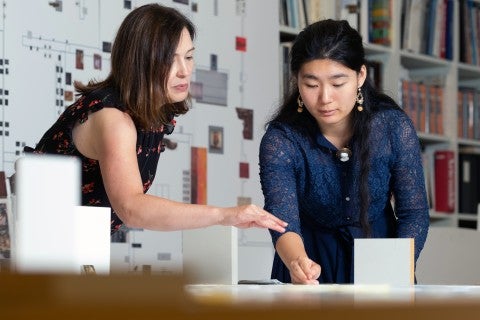The world depends on technical solutions for scientific and medical problems. However, technical solutions never remain purely technical matters -- they become social, cultural, political and economic as well as technical. To be effective, the people behind them must consider how to articulate the solution clearly; any motivations people may have for using or avoiding the solution; and the solution's actual impacts on everyday lives. To put science, medicine, and technology in their social, cultural, political, and economic contexts is both practical and profoundly meaningful.
The pursuit of the Humanities trains students in creative and critical analysis, interpretation and argument, analytical writing, and oral presentation, in individual and collaborative undertakings.
Our students investigate how societies, cultures, human values, and everyday experiences have been transformed, represented, and remembered over time. They do so through the exploration of ethics, morality, cognition, and creativity; the critical and comparative study of world cultures through religion, art, literature, and languages; the study of change, continuity, and conflict, and the consideration of how social, racial, gender, sexual and ethnic differences have shaped human experience in past and present times.

